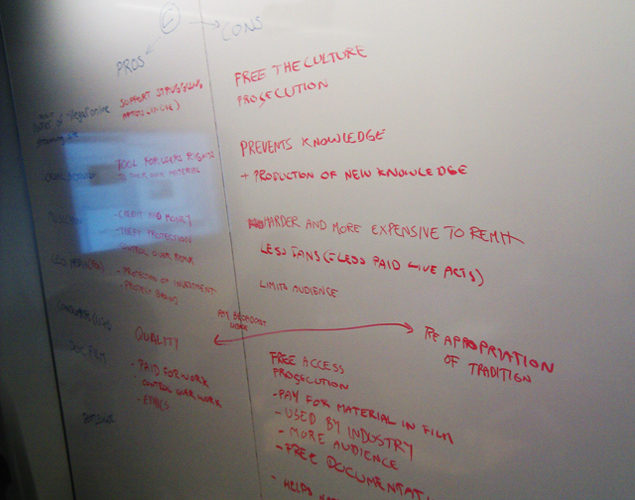The Introduction to Civic Media class participated in a role play discussing the pros and cons of copyright within creative industries, from different points of view. The roles were randomly assigned and each person had to argue their own case. Copyright was discussed from eight different points of view of: an idealist owner of an illegal streaming site, a bootlegger, a social activist, a “western world” consumer, a “third world” consumer (in lack of better terms, sorry), a musician, a documentary filmmaker, and the CEO of Fox media.
Some of the pros were: A good tool for users’ rights to control their own material, preventing theft and uncontrolled remakes of original content, creative control over product in general, better release quality, protection of investments, protection of brands, artistic control over remixes, payment for work (and connected to this: a devaluation of creative work could mean the death of professionalism), maintaining ethical control over documentary content.
Some of the cons were: Prosecution, limitations on culture, preventing knowledge from being equally and freely distributed, preventing development of new knowledge, less fans/audience, payment for quoting television and music in documentary footage, censorship of logos in images (= untruthful depictions of reality), artists are often exploited by their industries anyway and don’t get paid, free remixes and quotes of other artist’s works.

From the discussion it seems that copyright can be seen as good from some aspects and bad from others. It also became clear that there can not be one single solution for abandoning copyright that applies to all creative industries. For example a musician may gain more live acts by getting more fans through free internet distribution, while filmmakers don’t necessarily gain in the same way. There are also huge differences between production time and costs within different creative industries.
Possible alternatives discussed: Voluntary collective licensing, free state subsidizes culture, specific solutions for different arenas.

